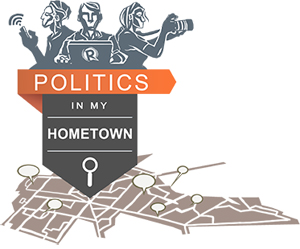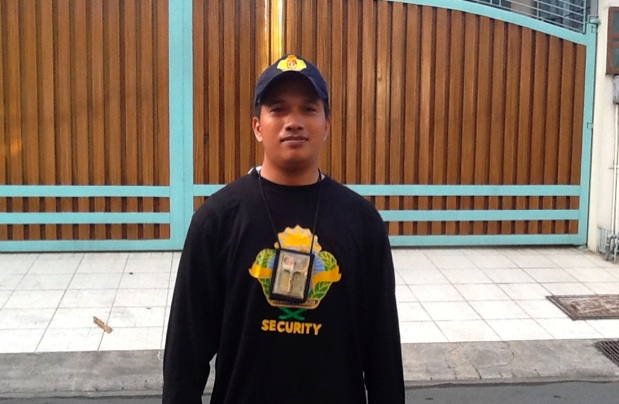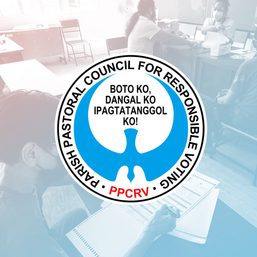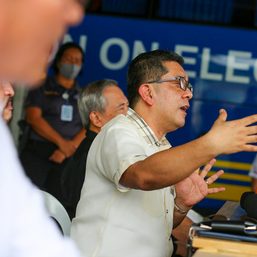SUMMARY
This is AI generated summarization, which may have errors. For context, always refer to the full article.

“Politics in My Hometown” is the readers’ corner on #PHvote, a space for first-person accounts on how campaigns and elections, governance, and service delivery are in your locality. Send to phvote@rappler.com your 800-word essay, collection of photos, videos, or any medium through which you can best tell your story. A photo and note about yourself will be a good idea.

QUEZON CITY, Philippines – This is Emmanuel. He is a security guard assigned to the street where my house is. I live in Scout Fernandez, Barangay Laging Handa, in Quezon City. It’s a residential area near the restaurant strip of Tomas Morato and Timog Avenue.
It’s a pretty middle-class community. Unlike the posh subdivisions of Green Meadows or Corinthian Gardens, ours does not have gates or walls surrounding the village. Our streets are peaceful enough that even if we didn’t have the luxuries of a gated community, our little village was secure enough.
And then the crimes started to happen.
There were rumors about a gang roaming the streets at night and stealing side mirrors from cars that were parked outside the houses. Then the rumors became worse, that the gangs were driving late at night, their cars without the headlights on, and if any other motorist flashed his car’s lights at them, they would shoot the poor motorist.
Something had to be done immediately.
We couldn’t rely on the local police. In our experience, asking the police for help isn’t always the best solution since a lot of underhanded deals tended to take place in matters like this. It was a case of, if you want something done, you have to do it yourself.
The vice president of our homeowners’ association called a meeting, with each household sending a representative. It was decided that each street would have a guard, whose salary will come from funds pooled from households in that particular street. There would be two shifts per day, one in the morning and one at night.
It has been a couple of years now since those security guards were assigned to village streets, and I dare say that the community has indeed benefited from their presence. There was a drastic decrease in the amount of crimes that were happening in our barangay; our streets are now a lot safer at night.
It was community in action. Had we turned to the local government for help, we would not have had a solution as immediate and efficient as the one the community came up with.
Others outside our community will probably argue: “Has the people lost all trust in local government that they would always choose to find solutions on their own through its civil groups?” Or, “Is it not the state’s duty to protect the citizens?”
My personal view is, while it is indeed the government’s job to serve and protect its people, the people themselves cannot rely on it 100 percent. Sometimes, the government, even when well- intentioned, does not deliver on its promises or find solutions as fast as we would like them to.
What happens then when a problem needs immediate solution? My answer is, it is now up to the people to take charge and find legal and truly responsive actions if they can. – Rappler.com
Ms. Fuentes is a student at the Ateneo de Manila University.
Add a comment
How does this make you feel?




![[PODCAST] Beyond the Stories: Ang milyon-milyong kontrata ng F2 Logistics mula sa Comelec](https://www.rappler.com/tachyon/2021/11/newsbreak-beyond-the-stories-square-with-topic-comelec.jpg?resize=257%2C257&crop_strategy=attention)



There are no comments yet. Add your comment to start the conversation.